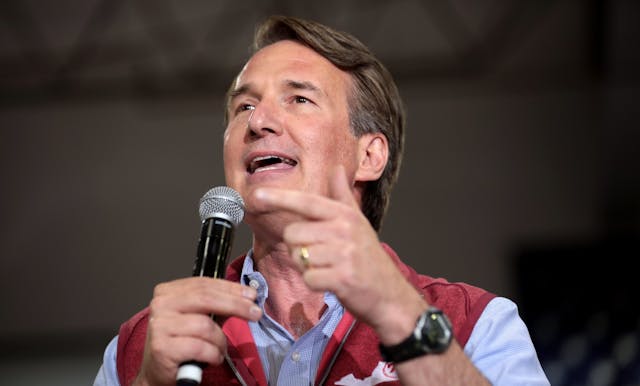Immigration Reform is Good for Healthcare Reform

Rep. Jeff Denham (R-CA) is passionate enough about immigration reform that he is leading an effort to buck House Republican leadership to get it done. And if he does, it could open up a lane for more compromise on healthcare reform efforts.
Immigration Reform by Rebellion
Normally, the Majority Leader in the House of Representatives decides which of the thousands of bills introduced are given a vote on the House floor. It is a powerful position, but also a tough job. For perspective, in the 114th Congress (2015-2016), 6,634 bills were introduced in the House, but only 896 passed out of the House. Every member of the House thinks all of their bills are important.
The magic number to pass anything in the House of Representatives is 218 - fifty percent plus one of the total number of US Representatives, 435. Let’s say the House is made up of 240 Republicans and 195 Democrats. If a bill is supported by 118 Republicans and 100 Democrats, the Majority Leader will not send it to the House floor. It needs the support of 121 Republicans - a “majority of the majority.”
Frequently this is called the “Hastert Rule,” after the Bush-era Republican Speaker of the House. This label is a misnomer, as it is a custom rather than a rule, and the custom did not originate with Hastert. Speakers from both parties dating back at least to Democrat Tom Foley in 1989, and probably farther, have followed this practice.
You typically hear more criticism about the Hastert Rule from the media during Republican-led Congresses.
Denham’s ally, Rep. Carlos Curbelo (R-FL), filed a parliamentary device known as a “discharge petition” to circumvent the Hastert Rule and the will of Republican House leadership. The discharge petition would force a vote on a Denham bill to bring four immigration reform bills to a vote on the House floor. The bill that gets the most votes would pass out of the House.
Of the four immigration reform bills, two are meant to appease the hardline elements on both the left and the right, and two are expected to appeal more to independent-minded Members of Congress.
Discharge petitions are rarely used and difficult to pull off. Members who sign on to discharge petitions are seen as rebels, and treated accordingly. Many House members would prefer not to feel the wrath of party leadership.
Here is the twist - the discharge petition was introduced by Curbelo, a Republican. It has 190 Democrat cosponsors but only 23 Republican cosponsors. It did not have any Democrat cosponsors until Minority Leader Nancy Pelosi gave Democrat members permission to sign on to the bill. The main reason this discharge petition is working is because it has the support of Democratic leadership.
Rebellion or Smart Politics?
Some would look at this as bipartisan cooperation. Others might say Denham and Curbelo are betraying leadership and their Republican colleagues by doing a favor for the opposition party. Still others might say this is the House “working its will,” a euphemism for allowing a vote on legislation that has a majority of members behind it.
I tend to think of it as a smart political move by Republicans who want to keep their seat, and the House majority.
The list of Republicans on the discharge petition for immigration reform reads a lot like the list of Republican House members targeted by the Democrats. Almost all these 23 Republicans are in “swing seats,” or seats that could be won by a Democrat or a Republican.
These people all have tough races and are looking for opportunities for bipartisan cooperation and the ability to demonstrate that Congress is actually doing something. And supporting DACA polls very well, as does standing up to party leadership.
Can Reform by Rebellion be Used Elsewhere?
Immigration reform is far from the only issue area that is hung up by the so-called Hastert Rule.
One of the main obstacles to much-needed healthcare reform is how to describe the effort.
Seriously.
The Democrats won’t work on anything that is called “replacing” Obamacare and the Republicans won’t work on anything seen to be “fixing” Obamacare.
Seems silly and petty, but it is bipartisan silliness and pettiness.
The members of Congress who have these concerns are typically the people at the extremes of both parties. And to be fair, they are driven by the passionate activists in their bright red or bright blue districts. In fact, these days even "fixing" Obamacare might seem against the progressive orthodoxy of establishing single-payer healthcare.
Someone might very well be able to fashion a coalition of independent-minded legislators - people less concerned about what to call their healthcare reform efforts - like the immigration reform coalition to work on healthcare reform. But it would require strong political will.
Remember, Denham’s discharge petition is gaining momentum because Democratic leadership supports it. Nancy Pelosi has given permission to the Democrat members of Congress to sign on to the Denham discharge petition, because she sees it as an opportunity to embarrass Paul Ryan. Likely, the leadership of both parties would be loathe to give up control of healthcare.
A group of legislators would have to start working together with the blessing of neither Republican nor Democrat leadership. Then they must find at least 218 of their colleagues to sign a discharge petition with both Republican and Democrat leadership working against them.
The question becomes, can a coalition of 218 legislators willing to break out of the partisan box come together to support this effort? And which Democrats have the political courage shown by Denham and Curbelo to go against the wishes of their party leaders?
Or is it Time to do Away with the Hastert Rule?
Has the so-called Hastert Rule reached the end of its usefulness?
Wikipedia says that Democratic Speaker Thomas Foley was the first to use "majority of the majority" tactics. In 1988, the year before Foley came to power, 42 percent of Americans had a positive view of Congress. Today it is 18% on a very good day. And as IVN readers well know, a plurality of Americans identify with neither political party.
While the majority of the majority tactics can't be entirely blamed for the current lack of confidence in Congress and political parties, these kind of tactics more broadly have become tiresome to a majority of Americans.
Big problems - existential problems - need to be solved, healthcare at the top of the list. Not only private sector health care, but Medicare. One of the few things most Republicans and Democrats agree on is that Medicare spending is going to almost double in ten years. Medicare spending, along with Medicaid, Social Security and interest on the national debt, is going to crowd out everything else.
By "everything else" I mean spending on National Parks, USAID programs to help starving children, the Department of Defense, the Department of Education, the Food and Drug Administration, Homeland Security and the like.
Yet this is little discussed and even less is done about it.
Were the Hastert Rule to be dispensed with, would majority coalitions more frequently formed in a bipartisan fashion?
Bipartisanship Happening Right Now
In the meantime, take solace in something almost unreported in the media. Democrats and Republicans are already cooperating on opioid addiction.
The House Energy & Commerce Committee voted last week to advance 57 pieces of legislation combating opioids to the House floor for a vote. Almost all of them were bipartisan. At least five were authored solely by Democrats. Fifty-three passed by voice vote, meaning that no member of Congress on either side could find enough wrong with those bills to ask for a recorded vote.



